 Your new post is loading...
 Your new post is loading...
Curtin researchers share secret seed recipe for better biodiversity
Curtin University researchers have developed a seed-coating technology that can help bring degraded landscapes back to life and repair damaged ecosystems. New research, published in the journal Seed Science and Technology to
The global hypocrisy angers me immensely. The stereotypes and prejudices are frustrating. While India as a country will be deemed trashy and polluted and the people unclean and ignorant, an average Finn or a person of another developed country will have a bigger carbon footprint and use more plastic than a typical Indian. But we Westerners get the trash out of sight very efficiently. Thus we praise ourselves for our ability to keep a clean, unpolluted environment.
This series focuses on some of the different sources of water available to us for the water cycle, as well as a look at how to manage demand for water. Interesting short videos that can be used to deliver the Earth & Space Sciences curriculum, for students in Year 2 thinking about use of the Earth’s resource of Water, Year 7 studying renewable resources via the water cycle or by Year 10 when thinking about modeling a global systems cycle.
Introduction
The link between fossil fuel reserves and war has been a clear pattern for decades, yet equally many violent conflicts and wars have already been fought over the access to water. Water is already a very scarce resource and at the same time as water is wasted and contaminated at a gigantic scale there are still a seventh of the world’s population without access to a safe water supply. There are serious issues with the world’s water and the systems we have designed to manage and care for water are deeply insufficient.
25 million people die each year from contaminated water. That is equivalent to the population of Canada
Every 8 seconds a child dies from contaminated water.
1.4 billion people have no access to safe drinking water.
2.4 billion people have no access to sanitary systems -one person in three.
(From Troubled Water by Anita Roddick and Brooke Shelby Biggs, 2004)
After years of being derided as a joke by car manufacturers and the public, interest in electric vehicles has increased sharply as governments around the world move to ban petrol and diesel cars.
We have seen a tremendous rise in availability, especially at the premium end of the market, where Tesla is giving established brands a run for their money. Electric cars are likely to penetrate the rest of the market quickly too. Prices should be on par with conventional cars by 2025.
Electric cars are praised as the answer to questions of green and clean mobility. But the overall sustainability of electric vehicles is far from clear. On closer examination, our entire transport paradigm may need to be rethought.
Our collective overuse and misuse of antibiotics is accelerating resistance to these universal drugs, leaving people increasingly vulnerable to infections that can no longer be treated. This applies not only to the use of antibiotics in human medicine, but also in animal industries.
Antibiotic resistance is an example of a collective action problem. These are problems where what is individually rational leads to a collectively undesirable outcome. Small things that many of us do, often on a daily basis, can have disastrous consequences in aggregate. The most challenging problems humanity is facing are in one way or another collective action problems.
The list of global collective action problems is long: plastic pollution of our oceans and waterways; the heightened concentration of greenhouse gases in the atmosphere leading to global warming; and the consumption of meat, the production of which is tied to environmental degradation.
Belouga’s Global Student Council is back for it’s second cohort during the 2017-18 school year. The Student Council is made up of a group student leaders from around the world that have excelled in global education and collaboration. Each month, these students write blog posts covering a range of topics related to global education. It is a great way to receive feedback and give a voice to the Belouga experience from a student’s point of view. We will be sharing these posts and hope you feel inspired to join in with questions and conversation!
This month’s topic aligns with World Water Day on Thursday, March 22nd and tasks Student Council members to put themselves in the shoes of someone lacking clean water. How would their life be different? What are some ways we can focus on and protect our ecosystem to conserve water and provide it to those in need?
Microplastics include broken-down plastic waste, synthetic fibres and beads found in personal hygiene products. They are known to harm marine life, which mistake them for food, and can be consumed by humans too via seafood, tap water or other food. The risk to people is still not known, but there are concerns that microplastics can accumulate toxic chemicals and that the tiniest could enter the bloodstream.
“Given their pervasive and persistent nature, microplastics have become a global environmental concern and a potential risk to human populations,” said Rachel Hurley from the University of Manchester and colleagues in their report, published in Nature Geoscience.
Join us for World Water Day! Let’s give thanks for water and for life
On March 22, come together to Bless The Water around the world.
It has been shown that water is responsive to the power of intention. Gather at your local water source, or home, and place your good intentions and prayers into the water. Let’s stand in solidarity with the world’s water protectors and with this blessing, take the first step towards cleaning and restoring the world's water.
Lessons from Success Stories
Around the world, people are innovating in ways that improve health and protect the climate, often while saving money. What can we learn from these projects, and how can we create more of them?
We interviewed the leaders of ten such initiatives and presented our findings on what is possible and how it can be accomplished in Multisolving at the Intersection of Health and Climate: Lessons From Success Stories, which was supported by a grant from the Robert Wood Johnson Foundation.
New data mapping the movements of Australian marine life over the past decade will provide insight into how climate change might affect sea animal behaviour, researchers say.
The study by researchers at the Integrated Marine Observing System (IMOS) and Macquarie University has tracked the whereabouts of 117 marine species, ranging from sharks and saltwater crocodiles to sea turtles and jellyfish using sound-detecting underwater receivers.
Following our annual Christmas overindulgence, many of us have set ambitious goals for the year ahead. But eating healthy shouldn’t just mean cutting down on snacks; given the environmental impact of food production, a more sustainable diet should feature high on everyone’s list of New Year’s resolutions.
Australians have one of the largest per capita dietary environmental footprints in the world, so there’s definitely room for improvement. But, as with all diets, radical and sudden changes like going vegan or vegetarian are notoriously difficult.
On 19 December 2017, China took the first step towards launching its carbon market - by allocating emissions quotas for a cap-and-trade scheme. The move follows seven regional pilots launched in 2013 and 2014, backed by central government. China's new nationwide scheme will apply to emissions from power plants producing more than 26,000 tons of carbon dioxide per year—which means almost all of China’s power plants will be included. Those power plants are estimated to produce 33% of China’s national emissions.
The volume of emissions from China’s electricity sector is so large, that even without including any other industries, the country’s carbon market will rapidly grow to become larger than the world’s current biggest, in Europe.
|
Our research, recently published in Nature Climate Change, describes a series of sudden and catastrophic ecosystem shifts that have occurred recently across Australia.
These changes, caused by the combined stress of gradual climate change and extreme weather events, are overwhelming ecosystems’ natural resilience.
Water, particularly in the Western United States, has always been inextricably linked to the economy. Historical investments in infrastructure like the Hoover Dam and the California Aqueducts have…
Amid the politics, it’s sometimes easy to forget that the Murray-Darling Basin Plan was originally designed primarily to restore the rivers’ environment. While questions have been raised over the plan’s governance, economics, and political commitment by the states, it is important to note that, more than five years after the plan’s adoption, the environmental benefits are slowly but surely being seen.
The Long-Term Intervention Monitoring Project began in 2014 to monitor and evaluate environmental outcomes from Commonwealth environmental water – the water being delivered into the Murray-Darling Basin by the plan.
Unlike the solar cells you're used to seeing, organic photovoltaics are made of compounds that are dissolved in ink and can be printed and molded using simple techniques. The result is a low-weight, flexible, semi-transparent film that turns the energy of the sun into electricity. Hannah Bürckstümmer shows us how they're made -- and how they could change the way we power the world.
Two years ago, New Zealanders were shocked when contaminated drinking water sickened more than 5,000 people in the small town of Havelock North, with a population of 14,000. A government inquiry found that sheep faeces were the likely source of bacterial pathogens, which entered an aquifer when heavy rain flooded surrounding farmland.
A second phase of the inquiry identified six principles of international drinking water security that had been bypassed. Had they been followed, the drinking water contamination would have been prevented or greatly reduced.
Here, I ask if the approach recommended by the Havelock North inquiry to prevent drinking water contamination can be extended to reduce the impacts of nutrient contamination of freshwater ecosystems.
DIGDEEP is not a water charity. We’re a human rights non-profit working to ensure that every American has clean, running water forever.
A chilling research paper warning about the fate of humanity has received 4,500 additional signatures and endorsements from scientists since it was first released last year.
The paper—"World Scientists' Warning to Humanity: A Second Notice"—was published in November 2017 in the journal Bioscience and quickly received the largest-ever formal support by scientists for a journal article with roughly 15,000 signatories from 184 countries.
Is climate change really making weather more extreme? The simple answer is yes. In this free e-book, we explain in plain language how burning fossil fuels is driving climate change and making our weather more intense and dangerous. We also share stories about how extreme weather is affecting people just like you, in their own words. We’ll go into the details on how climate change is impacting:
Wildfires
Flooding and drought
Hurricanes
Extreme heat (and extreme cold)
But it’s not all bad news – because we can solve the climate crisis. And we will.
At the end of this e-book, we’ll also give you ways you can join the climate movement and make a difference today. Download Extreme Weather and the Climate Crisis: What You Need to Know for free now.
Two cities on opposing continents, Santiago and Cape Town, have been brought to their knees by events at opposing ends of the climate spectrum: flood and drought.
The taps ran dry for Santiago’s 5 million inhabitants in early 2017, due to contamination of supplies by a massive rainfall event. And now Cape Town is heading towards “day zero” on May 11, after which residents will have to collect their drinking water from distribution points.
The world is watching the unfolding Cape Town water crisis with horror. On “Day Zero”, now predicted to be just ten weeks away, engineers will turn off the water supply. The South African city’s four million residents will have to queue at one of 200 water collection points.
Cape Town is the first major city to face such an extreme water crisis. There are so many unanswered questions. How will the sick or elderly people cope? How will people without a car collect their 25-litre daily ration? Pity those collecting water for a big family.
South Africa’s capital Cape Town has been forced to implement water rations for residents and may soon turn off water supplies after three years of extreme drought sapped the city’s reservoirs.
In a world first, the coastal city has mandated a water ration of 50 litres of water per person or 87 litres per household per day.
Watering lawns and gardens, filling pools and washing cars have all been banned in South Africa’s second-biggest city, with residents even advised to refrain from flushing the toilet unless absolutely necessary.
The non-profit organisation Foodbank released its report Fighting Hunger in Australia this month.
Like earlier research it reported that around 15% of Australians experienced food insecurity – an extraordinary figure given up to 40% of edible, but cosmetically imperfect, food is discarded before it reaches the market.
The survey revealed that 3.6 million Australians have experienced food insecurity at least once in the last 12 months. Three in five of those people experience food insecurity at least once a month.
|

 Your new post is loading...
Your new post is loading...
 Your new post is loading...
Your new post is loading...



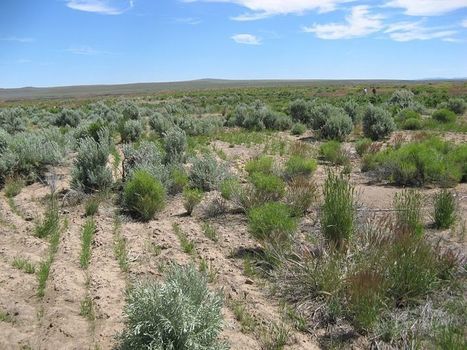

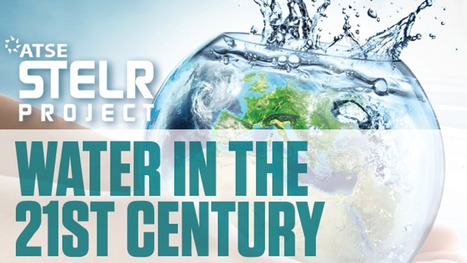

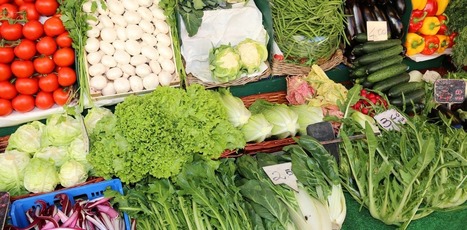
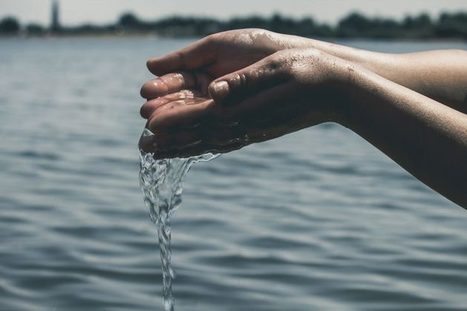

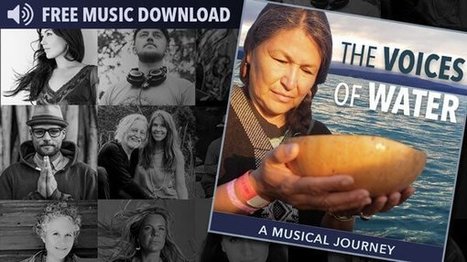
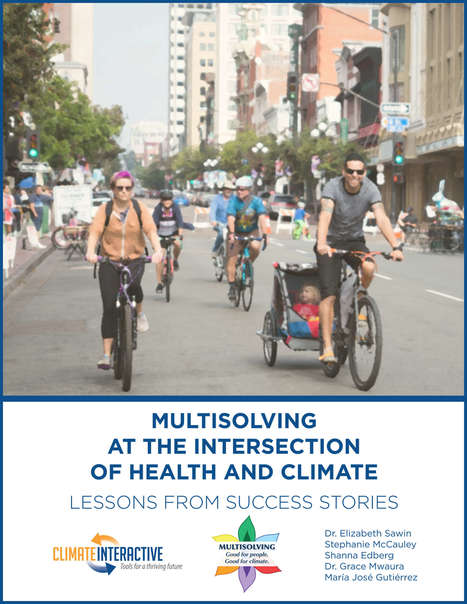
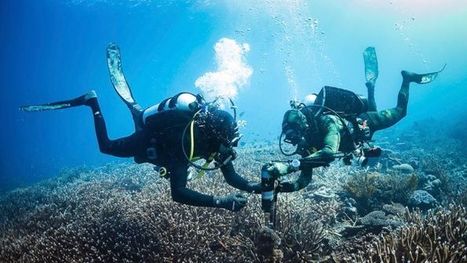
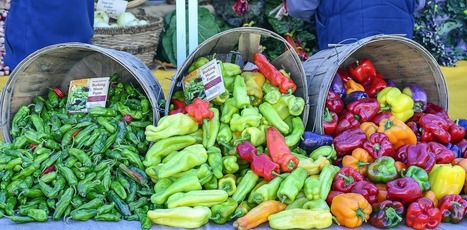

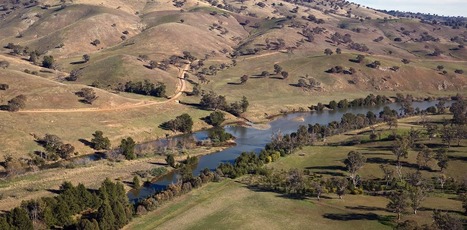

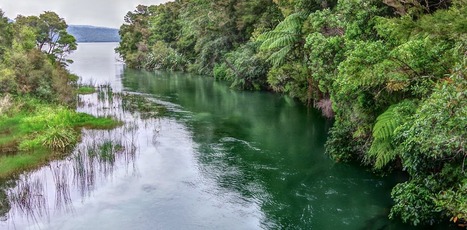
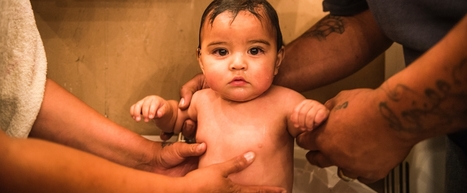
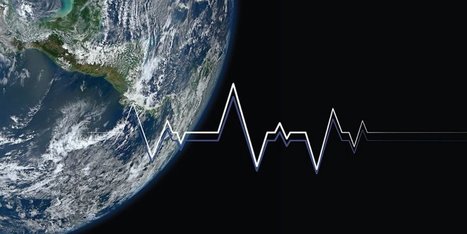
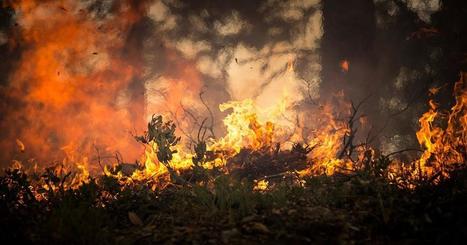
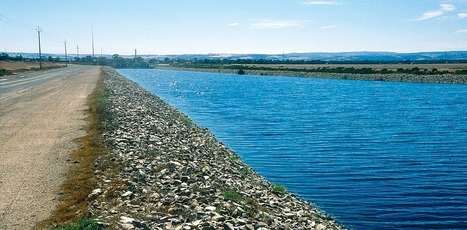
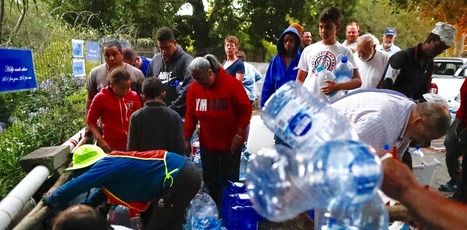







Curtin researchers share secret seed recipe for better biodiversity
Curtin University researchers have developed a seed-coating technology that can help bring degraded landscapes back to life and repair damaged ecosystems.